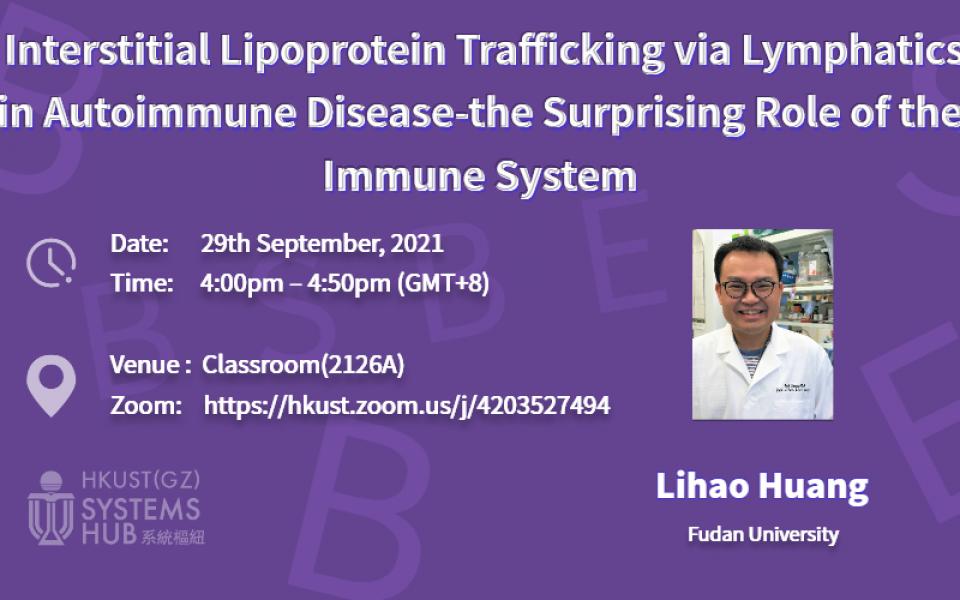Interstitial Lipoprotein Trafficking via Lymphatics in Autoimmune Disease-the Surprising Role of the Immune System
Supporting the below United Nations Sustainable Development Goals:支持以下聯合國可持續發展目標:支持以下联合国可持续发展目标:
ABSTRACT
We studied that psoriasis-affected skin lesions program interleukin-17-producing T cells in draining lymph nodes to home to distal skin and later to arteries. There, these cells mediate thickening of the collagenous matrix, such that larger molecules including lipoproteins become entrapped, and increased vascular stiffness and atherosclerosis via this common pathway. Thus, interleukin-17 can reduce lipoprotein trafficking and increase vascular stiffness by, at least in part, remodeling collagen (Huang et al; 2019 Cell Metabolism). We also studied intestinal chylomicron transport through intestinal lymphatics in patients with Crohn’s disease and investigated how this process is regulated by dysregulated immune responses (Huang et al; 2020 Gastroenterology).
BIOGRAPHY
Prof. Lihao Huang finished his undergraduate studies in Chemistry Department at National Taiwan University in 2003. Prof. Huang received his PhD degree in Biochemistry Department, Geisel School of Medicine at Dartmouth in 2013. After that, Prof. Huang worked in Pathology and Immunology Department, Washington University School of Medicine as a postdoctoral scholar then became an instructor from 2014 to 2020. His research interest that merges lipoprotein biology with immunology and vascular lymphatic biology to understand how autoimmune impacts inflammatory and metabolic disease has shaped his translational research goals, in which he will focus on interstitial lipoprotein trafficking through lymphatic vasculature, mediated by immune responses in metabolic and autoimmune diseases.
